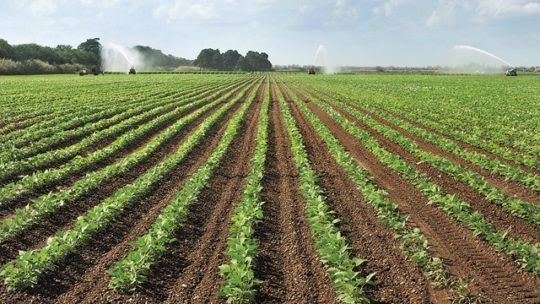Driving Nigeria’s Agricultural Productivity Through Policies, Programmes And Projects Since 1960
By Chiamaka Okechukwu
At the time of Nigeria’s attainment of independence in 1960, agriculture served as the cornerstone of the nation’s economy, contributing more than 70 per cent to Nigeria’s gross national product.
The agricultural sector demonstrated sustained growth driven by advancements in technology, innovation, and sufficient financial backing.
Agriculture serves as a significant driver of business activities, contributing approximately 19.63% to Nigeria’s Gross Domestic Product (GDP) in 2023. Additionally, it accounted for over 35% of total employment, playing a pivotal role in propelling the Nigerian economy.
Blessed with approximately 70.8 million hectares of arable land for the cultivation of maize, cassava, guinea corn, groundnut, millet, beans, rice and yam as the major staple crops over 70% of households in Nigeria engage in farming.
Livestock production also occupies a central position in Nigeria’s agriculture sector with cattle rearing and poultry being the major animals in the sector.
The important role of the agricultural sector in contributing to Nigeria’s economy is reflected in various agricultural policies, which birthed reforms under the past military regimes and democratic governments.
This was done through the formulation of policies, implementation of programmes and execution of projects geared towards increased agricultural production.
The National Accelerated Food Production Programme(NAFPP), was introduced in 1973 to encourage farmers to increase the production of food by applying modern agricultural practices.
By 1976, NAFPP was replaced with Operation Feed the Nation(OFN), and General Olusegun Obasanjo’s military administration steered Nigeria away from excessive dependence on crude oil.
The OFN encouraged Nigerians to produce, individually or in groups, the food they consume and was administered by a national council at the Federal, and committees at the State, and Local Government levels.
Under OFN, fertilizer was imported and sold to farmers at subsidized rates, storage facilities were constructed at strategic places all over the country; land clearing and land preparation were subsidized and the subsidy was introduced on agrochemicals.
Generally, OFN increased the number of farmers and raised people’s awareness of the key role agriculture could play in meeting food production targets and economic development in Nigeria.
Between 1976 and 1980, Nigeria also launched the Agricultural Credit Guarantee Schemes, established agricultural commodity marketing and pricing boards, and enacted the Land Use Act.
The 1988 National Agricultural Policy document operated for about fifteen years and aimed at improving agricultural production and creating export markets. This was further reviewed with a new Agricultural Policy document of 2001 that led to food self-sufficiency and security in Nigeria.
The 2011 Nigerian Agricultural Transformation Agenda Support Programme, designed to revitalize the agricultural sector, with a clear focus on achieving a hunger-free Nigeria through a phased programme that drives income growth, accelerates the achievement of food and nutritional security, generates employment and transforms Nigeria into a leading player in global food markets to grow wealth for millions of farmers.
The Muhammadu Buhari administration formulated the Agricultural Promotion Policy, APP of 2016–2020 (Green Alternative) as the national agricultural policy framework to drive the growth and development of agriculture in Nigeria.
Building on the successes of the transformation agenda programme, the new policy focuses on the farmers’ abilities to access loans for upscale production skills and increase acreages towards producing enough foods with special investments in rice production through the anchor borrowers and other agriculture guarantee schemes by the Central bank of Nigeria CBN that improved food security in Nigeria.
To further revolutionize Nigeria’s Agricultural Sector, in line with the Renewed Hope Agenda of President Bola Ahmed Tinubu, the administration embarked on the implementation of the National Agricultural Growth Scheme – Agro-Pocket (NAGS-AP). The NAGS-AP is designed to stimulate increased productivity and higher yields among farmers, ensuring a significant impact on food production and agricultural growth across the country.
It is expected that these policies, innovations and interventions in the agriculture value chain embarked upon will make Nigeria realize the nation’s potential in agriculture.
The advancement of agriculture will continue to play a significant role in Nigeria’s GDP, paving the way for food security, self-sufficiency, and the exportation of agricultural products to Africa and beyond.


Comments are closed.